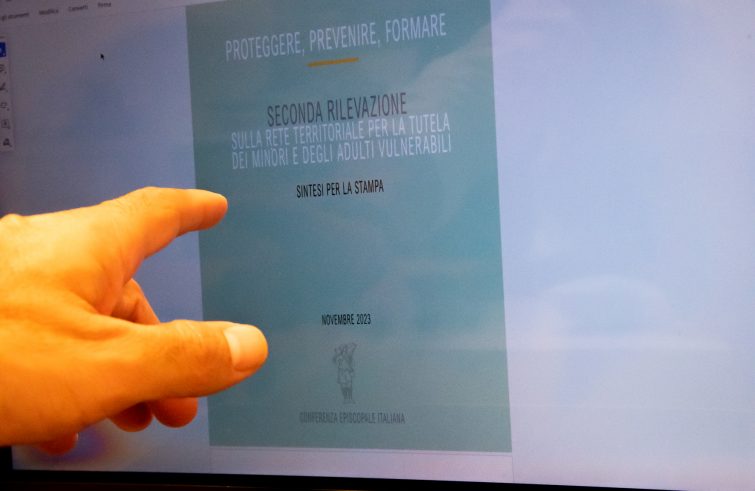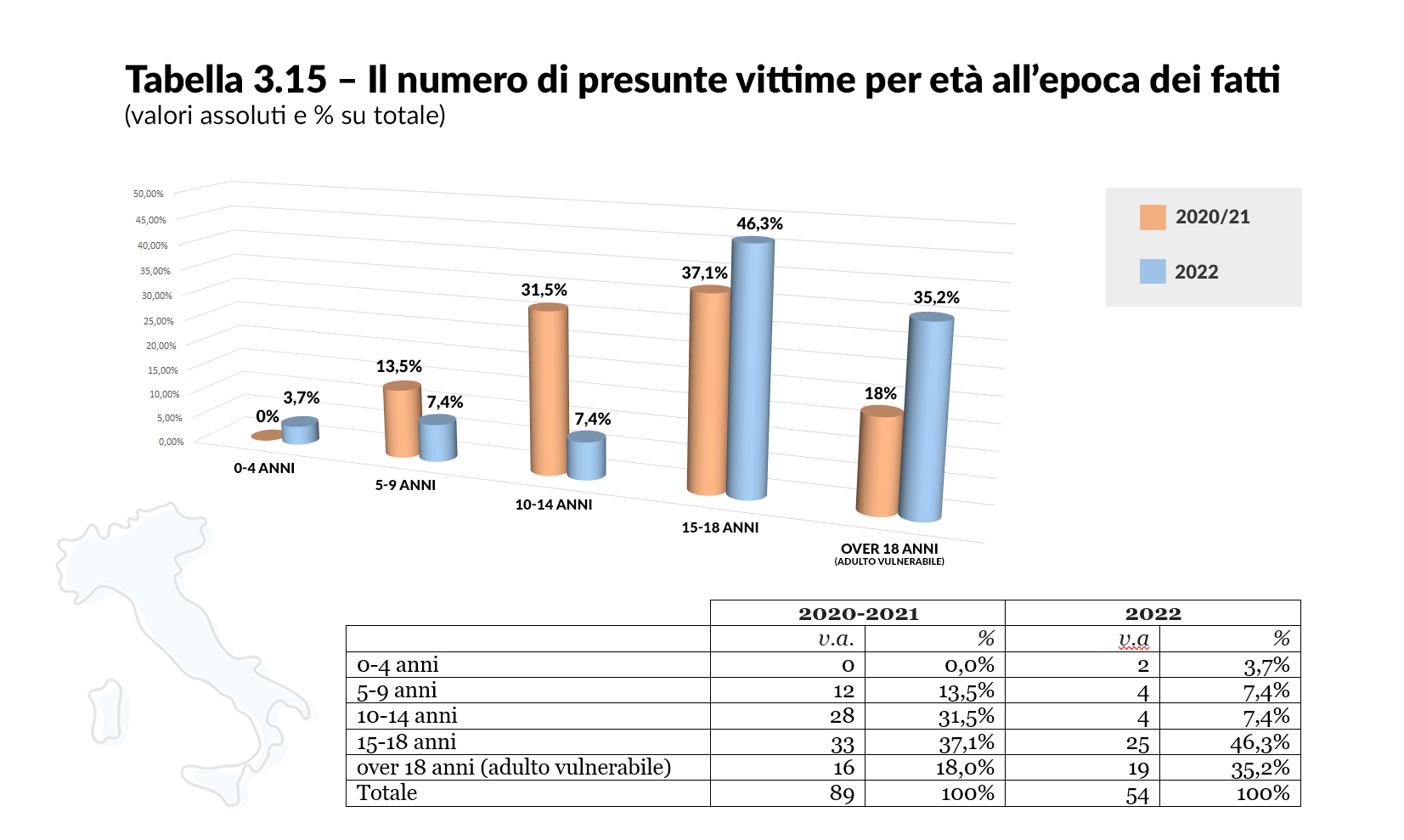
The second survey on the activities of territorial services for the protection of minors and vulnerable adults in Italy, promoted by the Italian Bishops’ Conference through the National Service for the Protection of Minors, was presented today, 16 November, during the Extraordinary Assembly of the Italian Bishops’ Conference in Assisi. The survey referring to data for the year 2022, commissioned to the experts Paolo Rizzi and Barbara Barabaschi of the Piacenza branch of the Catholic University of the Sacred Heart, involved regional, diocesan and interdiocesan services, as well as ‘Listening Centres’ throughout the country.
The first noticeable finding is the extensive participation of Italian dioceses, that went from 166 to 186, representing 190 out of a total of 206 dioceses (excluding merged dioceses and abbey dioceses), which brings the statistical relevance of the sample surveyed to 92.2%. This figure reflects the growing awareness of the issue, which has led to a “synodal” collection of data, in which each item recorded is the result of the direct involvement of hundreds of people working in pastoral care structures.
In terms of geographical distribution, the survey covered 82 dioceses (45.1% of the sample) in the south of Italy, 60 dioceses (32.3% of the sample) in the north and 44 dioceses (23.6% of the sample) in central Italy. In terms of size, more than half of the dioceses involved are medium-sized, with between 100 and 250 thousand inhabitants (104), and only 29 are small, with less than 100 thousand inhabitants.
The first part of the document is devoted to the activities of the diocesan and interdiocesan services, the majority of which are run by priests (46.2%), followed by lay people (39.7%) and only rarely by men and women religious (6.5%). In addition, 82.8% of the 186 dioceses surveyed have a team of experts supporting this service. In terms of specific activities, a significant increase was recorded compared to the year 2020: the number of proposed meetings more than tripled (from 272 to 901), as did the number of people involved (from 7706 to 23188). This confirms a positive trend in which the formation of priests and pastoral workers plays a key role in preventing and combating abuse. The number of initiatives and collaborations with other non-church bodies has doubled. There were 51 in 2022, up from 25 in the period 2020-2021. Participation in institutional civil forums has increased significantly, especially in the southern regions. On the other hand, the number of initiatives involving religious institutions remains very low.
The increase in the number of Listening Centres reflects the widespread presence of this important service throughout the country. Data were collected on the 108 Listening Centres set up by the diocesan or interdiocesan services for the protection of minors with 160 dioceses covered (amounting to 77.7% of Italy’s 206 dioceses).
The majority of the Centres are located in the north (46), with a relatively higher number of Centres compared to the dioceses that have set up the service for the protection of minors, followed by thirty-five Centres in the south and twenty-seven in central Italy (the dioceses of Sardinia are considered as south, although they are located in the central ecclesiastical region). The creation of the Centres is closely linked to the size of the diocese: 40 Centres were created in large dioceses or in dioceses which joined together for the purpose of providing this service, 54 Centres were created in medium dioceses and the remaining 14 in small dioceses.
They are generally located outside the diocesan curia (78% of the time) and in most cases (76%) under the direction of a lay person, most of whom have a background in psychology or education. Among the laity, women are the most numerous, accounting for two-thirds of those in charge of the Listening Centres.
Almost all Listening Centres are supported by a team of lay experts with psychological, legal and pedagogical expertise.
The number of people who contacted the Listening Centres rose sharply, from 38 in 2020 to 374 in 2022, mostly via telephone calls (84.4%) from non-victims (87.7%). The main reason for contacting the centres (81.9%) was to ask for information, while in 18.1% of cases it was to report abuse to the ecclesiastical authority. The request for information also explains the fact that several Listening Centres have set up a network with public authorities and social services in order to provide useful information to those who want to report abuse in the family environment but don’t know who to contact and how.
Thirty-two cases of alleged abuse were reported: the majority related to the past (18 or 56.8%) compared to recent cases (14 or 43.8%). Looking at the modality of the alleged abuse, it appears that most of the reports refer to actual cases (29 in absolute terms, i.e. 90.6%), and much less to cases related to web-based incidents (3 cases, i.e. 9.4%). Regarding the place where the alleged actual abuse took place, the parish is mentioned in most of the reports (17 out of 29 reports, i.e. 58.6%).
If we look at the reported cases according to the type of abuse, “inappropriate behaviour and language (insults, emotional and psychological blackmail, verbal harassment, psychological manipulation, seductive behaviour, emotional dependence, …)” is the most common, accounting for 20 out of 74 cases.
There were 54 victims of alleged abuse in the year 2002.

The age of the alleged victims at the time of the crime is in the 15-18 age group (25 out of 54). The second group of victims were over 18 years old (19 out of 54). A focus on the gender of the alleged victims shows a clear predominance of females (44) over males (10).
There were 32 alleged offenders in the year 2022.
An analysis of the profile of the alleged perpetrators shows that in more than 50% of cases they were between 40 and 60 years old, with an average age of 43. Almost all were male (31 out of 32), one third were clergy, one third religious and 37% lay. With regard to the laity, the analysis of the pastoral service carried out showed that at the time of the report, the alleged offenders held the following positions: educator (5 cases), catechist (1 case), founder of an ecclesiastical association, religion teacher, seminarian. Most were unmarried, but there were also 2 who were married.
With regard to the options offered by the Listening Centres to presumed victims in 2022, psychotherapeutic accompaniment (10 cases) was the most frequent, followed by the provision of information and an update on the progress of the complaint (9 cases). The possibility of a meeting with the Ordinary or spiritual accompaniment was also offered. The range of services was determined on the basis of the needs expressed by the alleged victims, after consulting the experts of the team supporting the diocesan services for the protection of minors.
Actions have also been taken to accompany the alleged abusers, starting with “psychotherapeutic accompaniment” (6 cases).
The creation of a regional Service in each ecclesiastical region with its own coordinator, usually a priest with psychological skills, a delegate bishop and a team of specialists, has been confirmed. The activities of the service are mainly formation oriented. The number of meetings offered has almost doubled since 2020 (the year in which the Regional Child Protection Services were launched, coinciding with the Covid19 pandemic), rising from 36 meetings in 2020 to 69 in 2022. Especially relevant is the increase in participants in activated initiatives, which more than doubled compared to the year 2020, from 914 participants in 2020 to 3276 in 2022.












